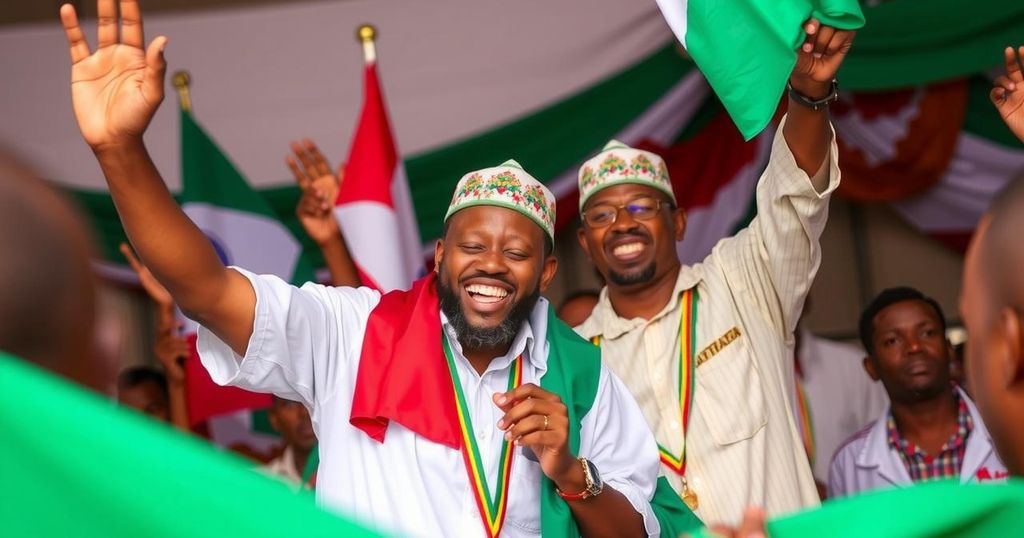Chad’s Ruling Party Dominates in Parliamentary Elections Amid Opposition Boycott

Chad’s ruling Patriotic Salvation Movement secured a majority in the parliamentary elections with 124 out of 188 seats amid a 51.5% voter turnout. The election, boycotted by the main opposition, is seen as a pivotal step in President Mahamat Idriss Déby’s effort to decentralize governance following his assumption of power amid security challenges in the region.
Chad’s ruling party, the Patriotic Salvation Movement, has emerged victorious in the recent parliamentary elections, securing 124 of the 188 available seats. This election, the first in over a decade, was marked by a low voter turnout of 51.5% and was boycotted by numerous opposition parties. Analysts suggest that the absence of formidable opponents has strengthened the position of President Mahamat Idriss Déby, who has faced criticism for the electoral process. This election is deemed a critical component of the country’s purported transition to a more democratic governance structure, initiated after Déby assumed power in 2021 following the death of his father, long-standing President Idriss Déby Itno.
The parliamentary elections in Chad are significant as they represent the first opportunity for citizens to cast their votes in over ten years. President Mahamat Idriss Déby, who came to power as a military leader in 2021 after his father’s demise, has emphasized decentralization and broader power distribution as his administration’s goals. However, the boycott by key opposition parties, including the prominent Transformers party, casts doubt on the inclusivity and legitimacy of the electoral process, raising concerns similar to those noted during last year’s presidential elections.
In summary, the recent parliamentary election in Chad has reaffirmed the ruling party’s dominance, with a notable lack of credible opposition and criticism regarding the electoral integrity. As President Déby pursues a transition toward decentralized governance, the overshadowing presence of opposition boycotts and external security threats demand careful observation to assess the future of democracy in Chad.
Original Source: www.euronews.com







